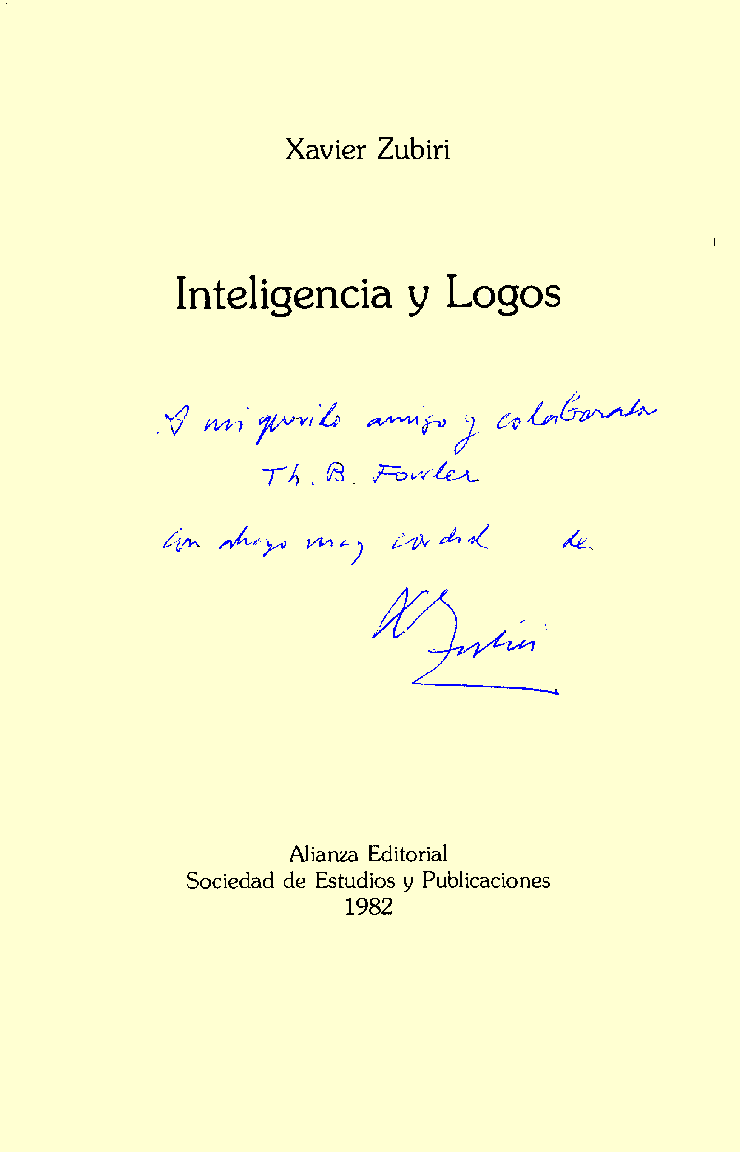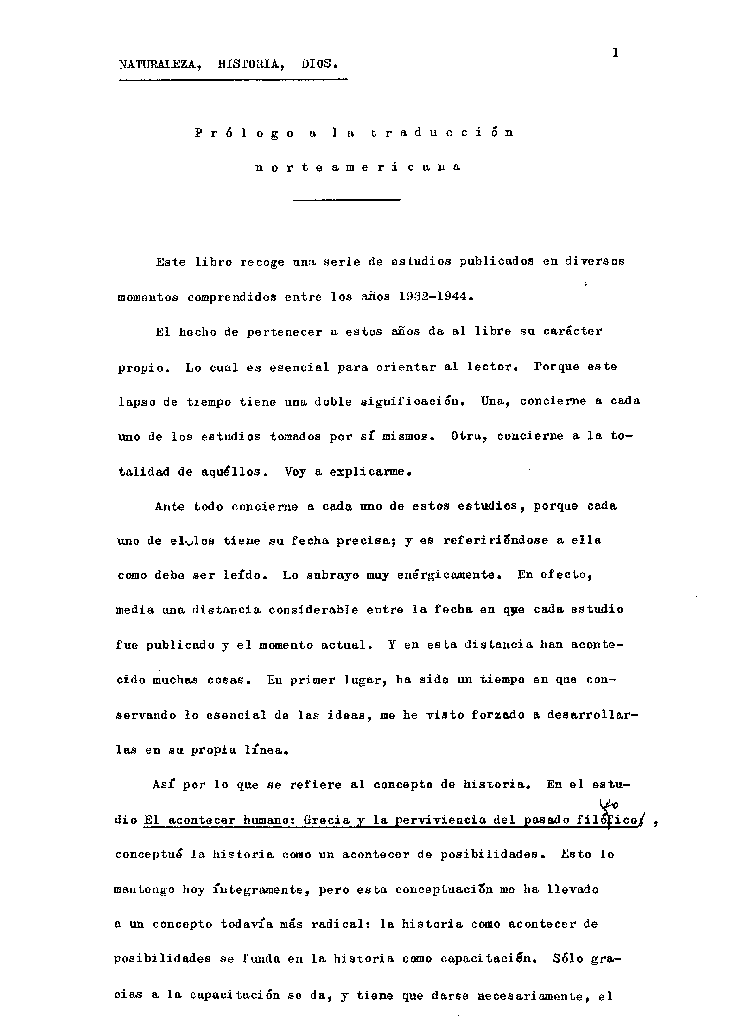 | Clickable thumbnails clockwise from upper left: In the study of his Madrid apartment, circa 1955; with his wife in the study of their Madrid apartment, May 1982; annotated prologue to the English edition of his Nature, History, God in which he set forth for the first time the intellectual periods of his life; autographed copy of Inteligencia y Logos. Xavier in Person Visit the Zubiri Picture Gallery Below: |  |
 | Early Years Xavier Zubiri y Apalategui was born in San Sebastián, on December 4, 1898. After preparatory studies in Guipúzcoa he attended the University of Madrid where some of his mentors were Angel Amor Ruibal, García Morente, Juan Zaragüeta, José Ortega y Gasset, Julio Rey-Pastor, and Julio Palacios. |  |
| He also included periods of residence at the University of Louvain, then under Cardinal Mercier, and the Gregorian University at Rome, the successor of the Collegio Romano. At the Gregorian, in 1920, he received the doctorate in theology. In 1921 he received a similar degree in philosophy from the University of Madrid.
Studying with the Great Minds of the Day In 1926 he won the competition for the chair of history of philosophy at the University of Madrid. Between 1928 and 1931 he included trips throughout Europe to study under the masters of various disciplines: classical philology with Werner Jaeger; philosophy with Husserl and Heidegger; theoretical physics with De Broglie and Schrödinger; biology with von Geluchten, Spemann, and Goldschmidt; mathematics with Rey-Pastor, La Vallée-Poussin, and Zermelo. His Madrid University lectures, Metaphysics of Aristotle (1931-1932), and Pre-Socratics (1933-1934) acquired special resonance. During the course of the Spanish Civil War (1936 to 1939), Zubiri was in Paris teaching courses at the Institut Catholique and studying oriental languages with Deimel, Benveniste, Labat, Dhorme, and others at the Sorbonne. In 1939 he married Carmen Castro who had been one of his students, and was the daughter of the Spanish writer Américo Castro. From 1940 to 1942 he occupied the chair of history of philosophy at the University of Barcelona.
Mature Years: Master of the Seminars In 1943 Zubiri left the university to strike out on his own program of research and teaching in Madrid. He created his own model, the cursos (seminars), and through them he continued to present and involve others with his philosophical insights. His seminars were well attended, and he gathered a group of devoted followers with backgrounds in many disciplines who worked with him on the development of his thought. This group met weekly with Zubiri to discuss philosophical matters and review his texts as they were being written. The first major book of his mature period, On Essence, was published in 1963. It represents a complete rethinking of the concept of essence in light of the entire history of philosophy and the development of science during the 20th century. His principal systematic work, Sentient Intelligence, appeared in three volumes in the early 1980s. In this work, Zubiri builds upon the entire history of philosophy and science to create a new philosophical vision which incorporates key elements and insights from virtually all major thinkers, but which also shows how each of their systems went astray. The scope, depth, clarity, and profundity of Zubiriís philosophy suggest that it is both the culmination of 2500 years of intensive intellectual struggle and the solid basis on which knowledge can build in the future. Zubiri died on September 21, 1983, in the midst of editing a new book for publication.
The Continuing Legacy After Zubiriís death, the Fundación Xavier Zubiri was established in Madrid to edit and publish the vast amount of material he left behind, and to coordinate studies of Zubiriís work. Many important works, mainly Zubiriís notes for his seminars, have already been published; they cover an astonishing spectrum of material. The first international congress on Zubiri was held in Madrid in 1993; the next is scheduled for the centennial of Zubiriís birth, 1998. | ||